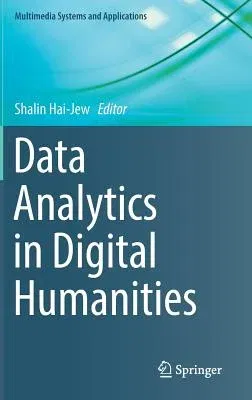Data Analytics in Digital Humanities (2017)Hardcover - 2017, 12 May 2017

Qty
1
Turbo
Ships in 2 - 3 days
In Stock
Free Delivery
Cash on Delivery
15 Days
Free Returns
Secure Checkout

Part of Series
Multimedia Systems and Applications
Print Length
295 pages
Language
English
Publisher
Springer
Date Published
12 May 2017
ISBN-10
3319544985
ISBN-13
9783319544984
Description
Product Details
Book Edition:
2017
Book Format:
Hardcover
Country of Origin:
NL
Date Published:
12 May 2017
Dimensions:
23.39 x
15.6 x
1.91 cm
ISBN-10:
3319544985
ISBN-13:
9783319544984
Language:
English
Location:
Cham
Pages:
295
Publisher:
Weight:
625.96 gm